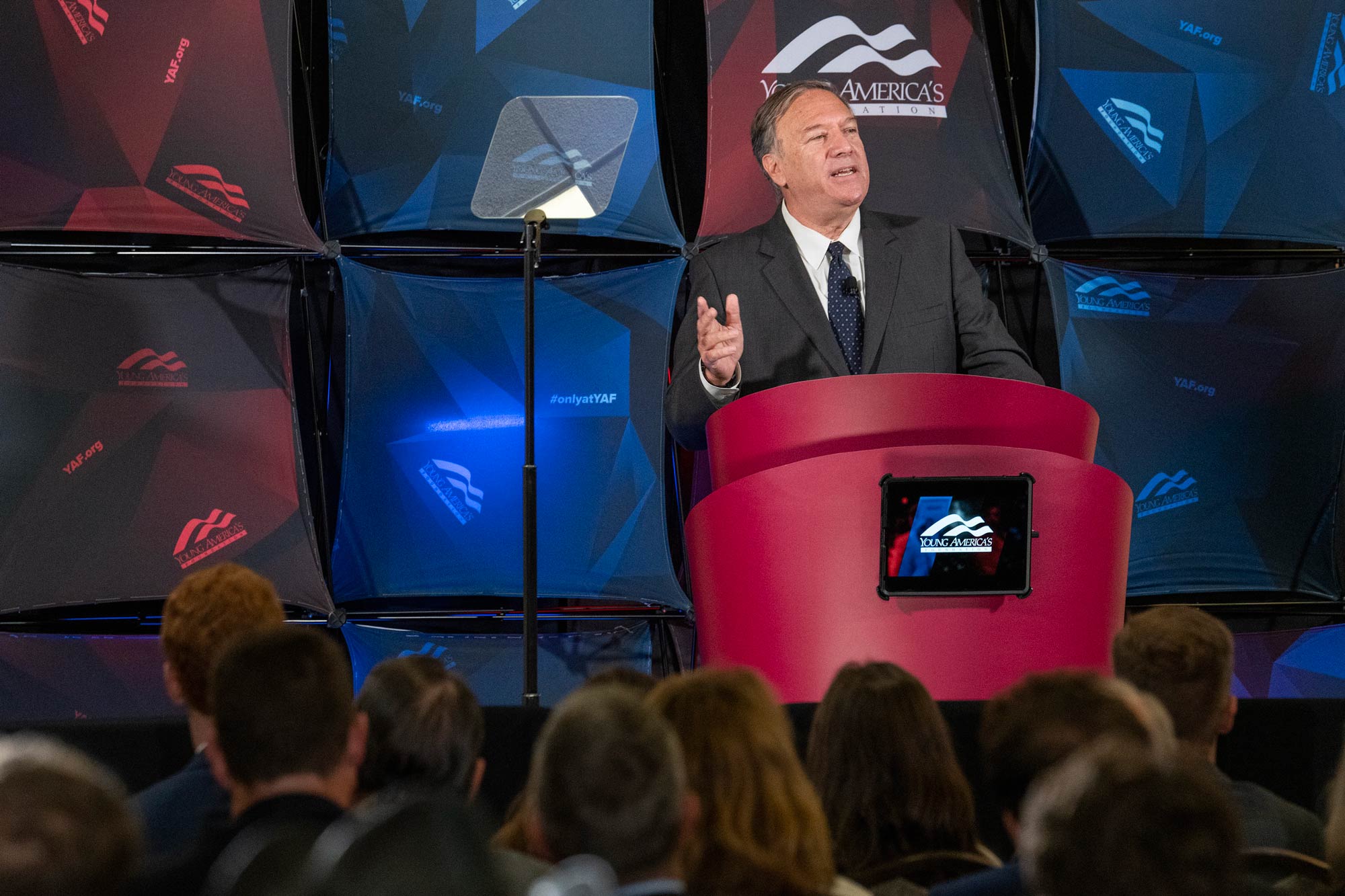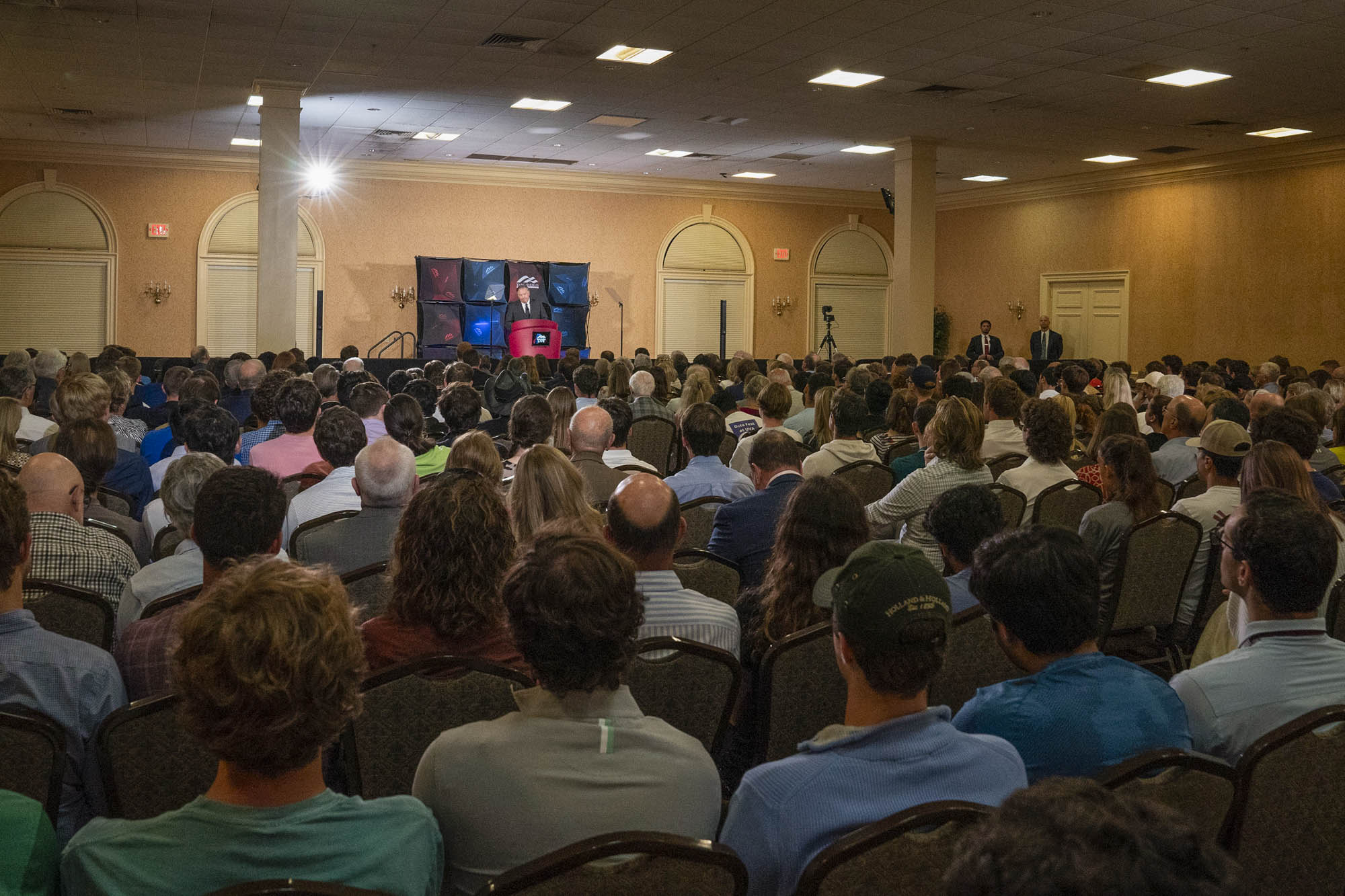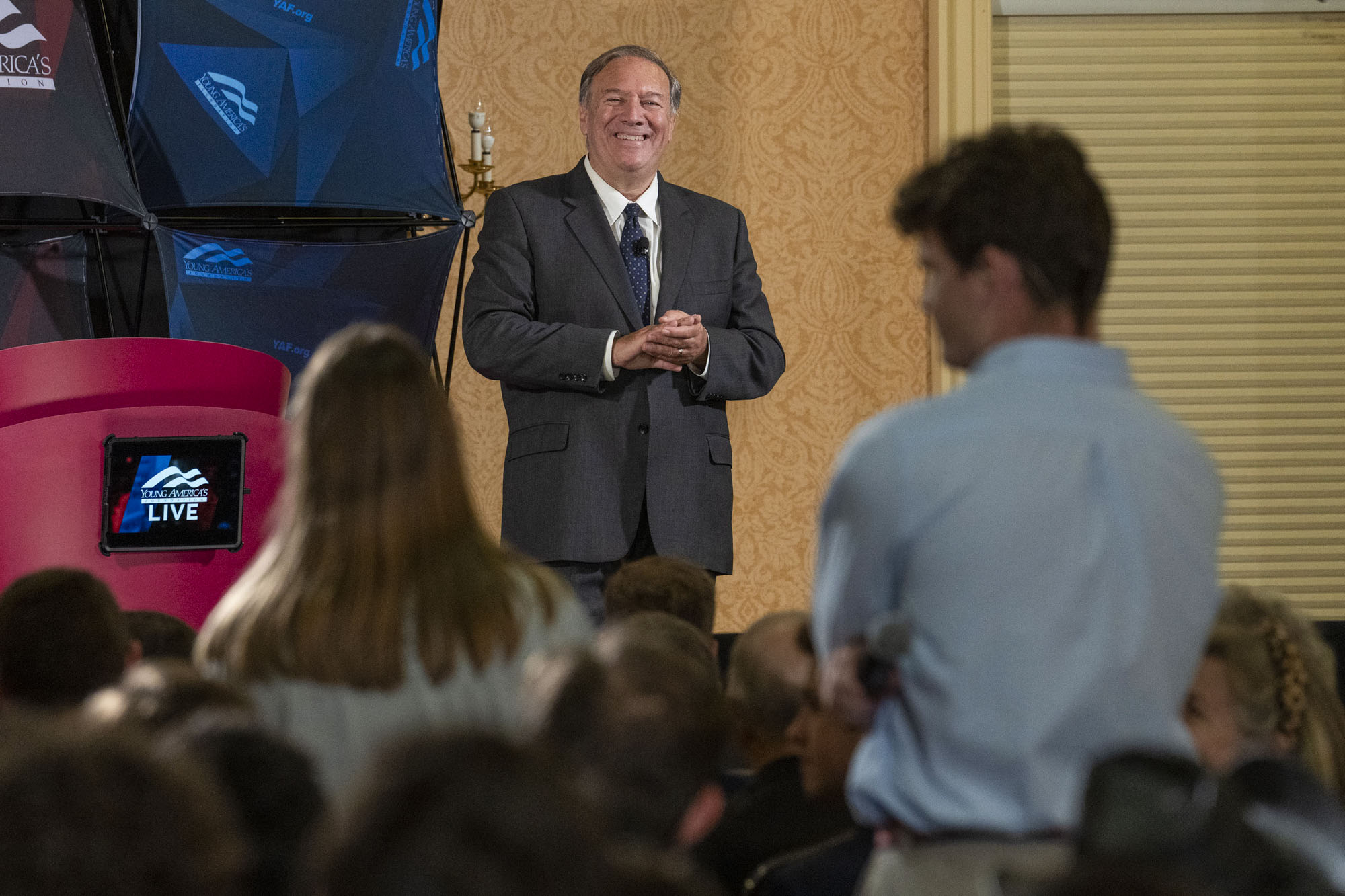Pompeo told the crowd how he had to weigh balancing atrocities from other nations with the bigger picture of what the United States needed from those nations. He defended Trump’s cordial meeting with North Korean dictator Kim Jung Un, even though UVA student Otto Warmbier had been so badly abused in a North Korean prison that he later died. And Pompeo defended remaining engaged with Saudi Arabia and Crown Prince Mohammed bin Salman after the Saudi leader ordered the murder and dismemberment of Washington Post columnist Jamal Khashoggi.
“We have to find a way through this thing,” Pompeo said of the journalist’s killing at a Saudi Arabian consulate. “They were an important security partner. The peace deals that were arranged between Israel, the United Emirates, the Bahrainis, the Moroccans and the Sudanese would not have happened without Mohammed bin Salman.”
“And I know Otto’s parents,” Pompeo continued. “Some amazing Americans. But we had a whole handful of incredibly difficult decisions” including dissuading the North Koreans from launching missiles and testing nuclear weapons, he said.
For the most part, Pompeo steered clear of significant criticism of President Joe Biden, with a few exceptions. Pompeo said it set a bad precedent for the United States to negotiate with Iran for the return of captured Americans. Five Americans, including one who was held for eight years and two who were prisoners for five years, were released from Iranian custody last week in a prisoner swap that also included the United States agreeing to transfer nearly $6 billion in frozen Iranian funds.
And Pompeo also criticized the current administration for sending aid to Ukraine piecemeal, saying, “You can’t say we’re going to send you four missiles, and when you expend those, we’ll send you four more in a month.” He said by that strategy, the United States is alerting Russian President Vladimir Putin that he can draw out the conflict.
At the same time, Pompeo also faulted some Republicans for trying to block aid to Ukraine.
It was the kind of conversation Lauren Horan, president of UVA College Republicans, was hoping to host when she started lobbying for Pompeo to visit. The event was also sponsored by the UVA Center for Politics, The Jefferson Council and Young America’s Foundation.












